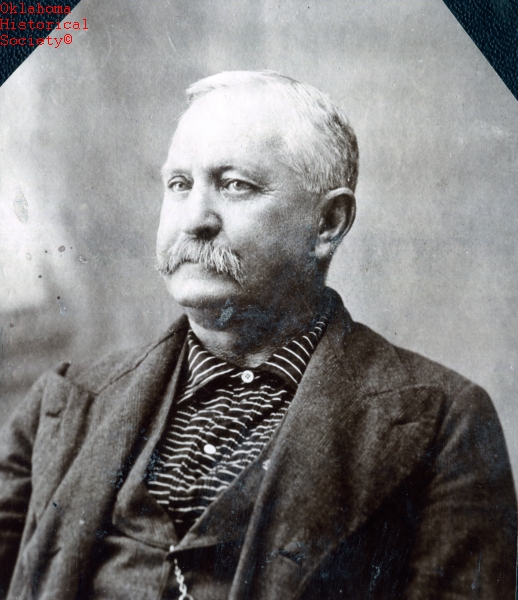
The Encyclopedia of Oklahoma History and Culture
DICKERSON, JOSEPH THOMAS (1864–1954).
An attorney and a judge of the United States Court for the Indian Territory, William Joseph Thomas Dickerson was born to Thomas and Hannah Dickerson on January 8, 1864, in Lewisburg, Ohio. The family moved to Iowa and then to Kansas in the 1870s and 1880s where they farmed. Joseph Dickerson earned the bachelor of letters degree from the University of Kansas in 1887.
Dickerson practiced law in Marion, Kansas, and married Carrie Sacket in 1891. Very active in politics, he was very close to Kansas's Sen. Charles Curtis, author of the Curtis Act, who was later vice president in the Herbert Hoover administration. In 1904, when Congress created four additional positions for the United States Court for the Indian Territory, bringing to eight the number of judges of the court, Pres. Theodore Roosevelt named Joseph T. Dickerson to the Southern District bench. In a sense, the four new positions were "junior judgeships," for the occupants did not have the power to name court personnel and did not sit on the Indian Territory appellate bench.
Dickerson served on the court from 1904 until 1907 statehood. After leaving the bench, he served as the Republican member of the State Board of Affairs, was the Oklahoma Republican Party's nominee for United States senator in 1912, and was a member of the Oklahoma House of Representatives in the Fifth Legislature, 1914–16. While a legislator, Dickerson was one of the board of managers in the successful impeachment trial of Corporation Commissioner A. P. Watson.
Dickerson practiced law in Oklahoma County for the rest of his career. Although the former judge was a Republican, Gov. William H. "Alfalfa Bill" Murray appointed him in 1934 to a newly created common pleas judgeship in Oklahoma County. Dickerson resided in Edmond, Oklahoma, where he died on February 7, 1954, at age ninety. He is buried in Memorial Park Cemetery in Oklahoma City.
See Also
THOMAS CHAUNCEY HUMPHRY, WILLIAM RIDGWAY LAWRENCE, LUMAN F. PARKER, JR., LOUIS M. SULZBACHER






